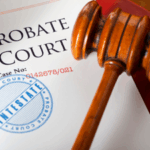Biggest Headaches in Probate — and How to Avoid Them
If you’ve ever lost a loved one in Colorado, you know that grief is hard enough without having to deal with the court system. Yet for many families, that’s exactly what happens when a loved one dies — they find themselves knee-deep in Colorado probate.
Probate is the legal process of validating a will (if there is one), paying off debts, and transferring a person’s assets after they die. While it serves an important purpose, probate in Colorado can quickly become a nightmare if you’re not prepared.
Let’s explore the biggest headaches people face in Colorado probate and how you can avoid them before they spiral into serious problems.
1. Not Knowing Whether Probate Is Even Necessary
The Headache:
Many families aren’t sure if they even need to go through probate. This uncertainty delays the process and creates tension among heirs.
Colorado Law:
In Colorado, not all estates require probate. If the estate is worth less than $86,000 (as of 2025) and there is no real estate involved, heirs can often avoid probate entirely by using a small estate affidavit.
How to Avoid It:
- Talk to a probate attorney soon after the death.
- Make an inventory of the estate’s assets to determine whether it qualifies for simplified procedures.
- Use tools like beneficiary designations, Payable on Death (POD) accounts, and joint ownership to keep assets out of probate entirely.
2. Missing or Invalid Wills
The Headache:
Sometimes families can’t find a will at all. Other times, the will is outdated, unsigned, or improperly witnessed, which can invalidate it.
Colorado Law:
Colorado recognizes typed, handwritten (holographic), and electronic wills, but each has strict requirements. For example:
- A typed will must be signed by the testator and two witnesses.
- A handwritten will must be entirely in the testator’s handwriting and signed but witnesses are not required.
How to Avoid It:
- Store your will in a secure but accessible place (not a locked safe no one can open).
- Make sure your will meets Colorado’s legal standards. Better yet, have it reviewed by an estate planning attorney.
- Use Colorado’s electronic will statute (C.R.S. § 15-11-1301) if you want a digital option, but follow every step carefully.
3. Family Conflicts and Will Contests
The Headache:
Few things derail probate faster than fighting among heirs. Allegations of undue influence, disinheritance, or “Dad never would’ve wanted this” can turn probate into a courtroom drama.
Colorado Law:
Colorado allows people with “standing” (usually close relatives or named heirs) to challenge a will. They might claim:
- Undue influence
- Lack of capacity
- Forgery
- Improper execution
This can result in the will being wholly or partially invalidated.
How to Avoid It:
- Communicate your intentions with family members while you’re alive.
- If you’re doing something unusual — like disinheriting someone — write a letter of explanation (but keep it separate from the will).
- Include a “no contest” clause in your will. While Colorado courts don’t always enforce them strictly, they can discourage frivolous challenges.
4. Delays Due to Missing Documents or Poor Recordkeeping
The Headache:
Probate often grinds to a halt because the Personal Representative (or Executor) can’t locate bank account numbers, property deeds, or insurance policies. Because there is no single place to search for what someone owned when they died, this can cause severe delays in the process.
Colorado Law:
A personal representative must file an inventory of assets with the court within three months of appointment. Delays can lead to court interventions or fines.
How to Avoid It:
- Maintain an estate organizer or binder with copies of:
- Wills and trusts
- Bank account info
- Life insurance
- Retirement accounts
- Real estate deeds
- Digital assets (logins and passwords)
- Let your personal representative know where to find it.
5. Disorganized or Unqualified Personal Representatives
The Headache:
The Personal Representative is responsible for managing the entire probate process. If they’re overwhelmed, disorganized, or not up for the job, the estate suffers.
Colorado Law:
A Personal Representative in Colorado has a fiduciary duty to:
- Collect and inventory assets
- Notify creditors
- Pay valid debts
- Distribute the estate properly
They can be removed by the court for misconduct or mismanagement (C.R.S. § 15-12-611).
How to Avoid It:
- Choose someone responsible, organized, and available — not necessarily your oldest child or closest relative.
- Consider naming a professional fiduciary or attorney as your backup personal representative.
- Provide clear written instructions, especially if your estate is complex.
6. Unpaid Debts and Surprised Creditors
The Headache:
Nothing ruins the end of probate like a surprise claim from an unknown creditor. It could drain the estate or trigger litigation.
Colorado Law:
In Colorado, the personal representative must publish a notice to creditors in a local newspaper and give direct notice to known creditors. Creditors generally have four months from the date of publication to file claims.
How to Avoid It:
- Keep a list of known debts and store it with your estate plan.
- Make sure your personal representative follows proper notice procedures.
- Don’t try to hide debt — it will surface.
7. Real Estate Snags
The Headache:
Homes are often the biggest and most complicated asset in a Colorado estate. Issues with title, mortgage, or multiple heirs can delay probate.
Colorado Law:
Real estate in probate must either be:
- Sold by the personal representative (if allowed in the will or authorized by the court), or
- Retitled to the heir through distribution deeds
Jointly owned property with rights of survivorship doesn’t pass through probate (instead the surviving owner receives the property). But if a property is held as tenants in common, it must go through probate.
How to Avoid It:
- Use Beneficiary Deeds for real estate in Colorado (C.R.S. § 15-15-401). These allow property to pass directly to a named beneficiary at death — no probate needed.
- Make sure your deed is titled correctly and updated as your wishes change.
- Avoid naming multiple heirs to the same property unless you have a clear agreement about what happens next.
Final Thoughts: Plan Ahead to Avoid the Pain
Probate in Colorado doesn’t have to be a disaster — but it often is when families don’t plan ahead. The good news? Every headache we’ve discussed can be prevented or minimized with smart planning, clear communication, and professional guidance.
Whether you’re preparing your own estate or handling the affairs of a loved one, the key is education and preparation. Meet with an estate planning attorney, get your documents in order, and talk to your family about what you want.
Because the only thing worse than going through probate is going through it blind.
Need Help Navigating Colorado Probate?
Whether you’re starting the process or wondering how to avoid it altogether, I can guide you with clarity and compassion. Schedule a free consultation and take the first step toward peace of mind.
———–
This website includes information about legal issues. Such materials are for informational purposes only and may not reflect the most current legal developments. These informational materials are not intended, and should not be taken, as legal advice on any particular set of facts or circumstances. You should contact an attorney for advice on your specific legal problems.




